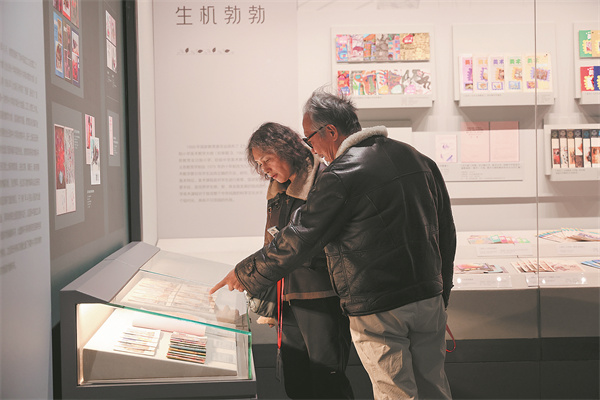

In his article penned in 1934, painter Feng Zikai (1898-1975) recalled childhood enlightenment as he learned about painting. When he studied Chinese poetry and the Three-Character Classic, a 13th-century text for children on Confucian philosophy, he found himself, instead of being captured by the text, seized by the illustrations. These images intrigued him so much that he began coloring them using pigment from his family's dyehouse.
"The children new to school enjoy coloring illustrations in textbooks," says Li Hongbo, an art professor at Jilin Normal University. "They may have limited understanding of colors but they often take pride in their 'creations' and find endless pleasure from such activities.
"This is a prevalent phenomenon and can even serve as a gateway for children to learn about painting. It also signifies that textbooks from other subjects can contribute to the fundamental fine arts education."
Feng's story is shown in the ongoing Mirror to the Future: Chinese Basic Art Education Literature Exhibition, which highlights the development of the country's fundamental fine arts education since 1904, at The First Historical Archives of China in Beijing.
Organized by the archives and Beijing Normal University, the exhibition traces the 120-year history of the development of basic fine arts education in China, from early exploration and middle-stage tortuous development to it thriving in the new era, through 1,359 items, including files, textbooks and teaching aids. It runs until July.
"This exhibition showcases the rich value of fine arts education in enhancing the ability to appreciate beauty, cultivate sentiments, nurture the soul, and stimulate innovative vitality. … It also enables the rich archival resources containing historical, cultural and aesthetic value to integrate into the field of education, giving full play to their roles of preserving history and educating people," says Wang Hongyun, director of the archives.